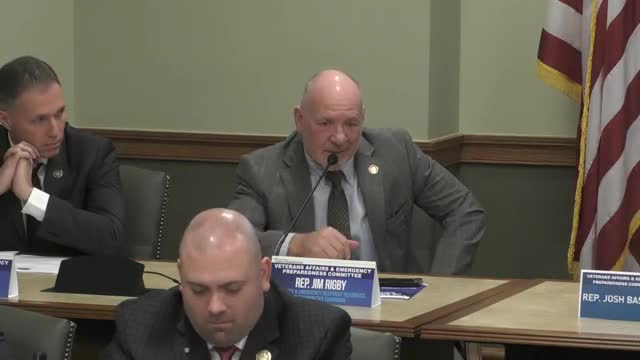Veterans Affairs & Emergency Preparedness committee organizes for 2025–26 session, sets veterans retention and 2026 preparedness review as priorities

Summary
The Pennsylvania House Veterans Affairs and Emergency Preparedness Committee organized for the 2025–2026 legislative session, adopted standard operating rules and said its early meetings will focus on carrying over stalled bills, veteran retention measures and an emergency-preparedness review ahead of the nation’s 250th anniversary in 2026.
The Pennsylvania House Veterans Affairs and Emergency Preparedness Committee formally organized for the 2025–2026 legislative session and set priorities that include moving bills stalled last session, pursuing policies aimed at retaining and attracting veterans to the Commonwealth, and taking stock of emergency-preparedness infrastructure in advance of the 2026 U.S. semiquincentennial.
Chairman Jared Solomon told members the committee will focus its first two to three meetings on legislation that did not advance in the Senate last session and asked members to submit policy priorities for the committee to consider. He urged members to work directly with the co-chairs and staff and noted that the Legislative Reference Bureau (LRB) is finishing drafting several measures that the committee will take up once complete.
Solomon also reviewed procedural rules the committee will follow. The committee will operate under the standard committee operating rules referenced in House Rules 1(c) through 4(c), he said, and he reminded members that House Rule 3(c) sets deadlines for amendments to be filed with his office for consideration at meetings. He said he will notify the Speaker of the House that the committee is organized for the session.
Co-chair Jared Gillen and committee staff introduced themselves. Staff and members described the committee as bipartisan and frequently focused on volunteer fire, EMS and veterans service issues. Solomon outlined two policy themes the committee will prioritize this year: legislation aimed at retaining veterans and making Pennsylvania competitive in recruiting veterans from other states, and an assessment of emergency-preparedness infrastructure ahead of 2026.
Members were invited to propose legislation and meet with the chairs to discuss bills they want the committee to advance. Solomon said the goal is to move as many bills as possible to the governor’s desk and to schedule signings where appropriate.
The committee also completed paperwork and affirmed it had a quorum to conduct business. No formal motions were recorded during the organizational remarks beyond the later votes on specific measures taken during the same meeting.
The chairs said the committee’s next meetings will concentrate on the bills carried over from the prior session and on the items they highlighted as priorities.

